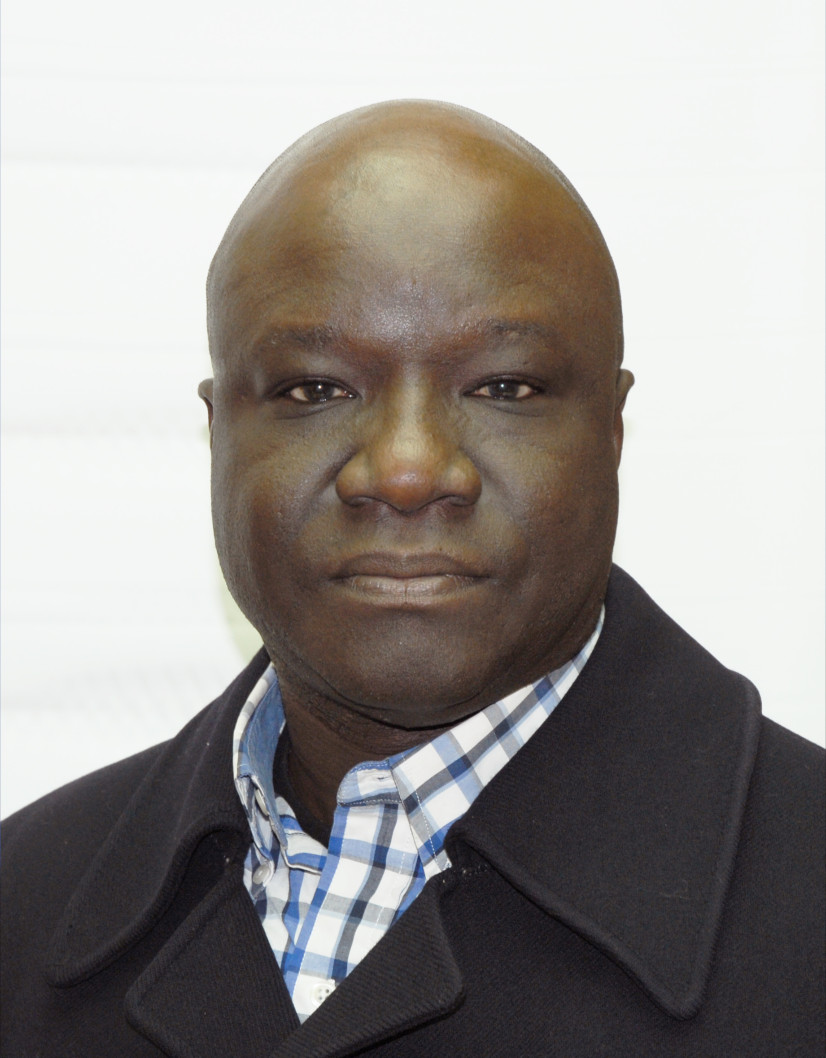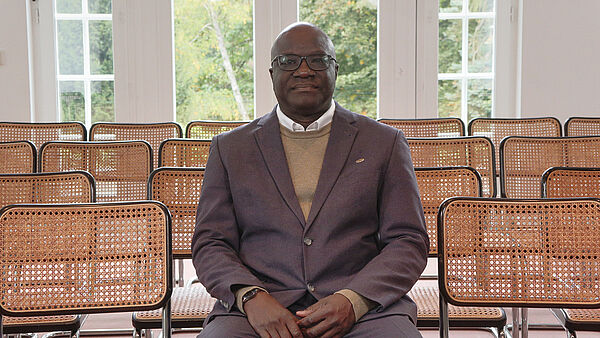
Omar Gueye, PhD
Professor of History
Université Cheikh Anta Diop de Dakar
Born in 1965 in Rufisque, Senegal
MA in History from the Université Cheikh Anta Diop, MBA in Cultural Heritage Management from the Université Internationale francophone Léopold Sédar Senghor, PhD in Contemporary History from the Université Cheikh Anta Diop, PhD in Social History from the University of Amsterdam
Arbeitsvorhaben
Women of 1968: Africans in the Global Context
The research project “Women of 1968: Africans in the Global Context” draws on the microhistory of African women to explore the global context of women’s struggles, reconsidering African women’s untold itineraries from the global social movement of May 1968. It focuses on the legacy of the 1960s and the efficiency of the May 1968 revolution for African women who accommodated and/or raised the paradigms of the Global South to meet global standards.First, the project revisits the less known role of “the invisible women” in the global youth revolt of 1968 and seeks to elucidate how Africans were confronted with their specific feminine issues while connected to their colleagues in other parts of the world. Second, it seeks to show how, in the African version of the revolt, women reconciled local conservative traditions in their countries with their openness to modernity and revolutionary injunctions, and how they equally accommodated male veteran discourses in their own struggles. Third, it examines how, in the wake of the ideals of 1968, the itinerary of African women accounts for women’s struggles against centuries-old societal burdens and how they reacted to the challenges of globalization.
In sum, the research project will significantly enhance women’s studies in general, and more specifically the study of women in social movements, the 1968 event, and African political activism.
Recommended Reading
Gueye, Omar. Sénégal: Histoire du mouvement syndical. La marche vers le Code du Travail. Paris: Editions L’Harmattan, 2011.
–. Mai 1968 au Sénégal, Senghor face aux étudiants et au mouvement syndical. Paris: Karthala, 2017.
–. “African History and Global History: Revisiting Paradigms.” In Global History, Globally: Research and Practice around the World, edited by Sven Beckert and Dominic Sachsenmaier, 83–107. London: Bloomsbury, 2018.
Kolloquium, 10.12.2024
Les femmes de 1968. Les africaines et le contexte global
À l’instar de leurs homologues de Paris, Prague, Francfort, Tokyo, Chicago et d’autres villes du monde, les étudiants de l’Université de Dakar, la 18e université française en Afrique, furent le détonateur d’une crise politico-sociale en mai 1968 au Sénégal. Ce mouvement étudiant et ouvrier fut un moment de remise en cause et d’affirmation pour les femmes qui réexaminaient les pratiques et traditions multiséculaires et réclamaient l’égalité dans tous les droits. Si cet élan émancipateur a suivi une courbe ascensionnelle dans les autres continents, il reste problématique en Afrique en raison des suspicions et des résistances aux idées et pratiques « venues d’ailleurs ».
Cette relecture africaine de Mai 1968 porte sur les femmes « invisibles » dont la participation est rarement évoquée dans les narratifs des événements, largement défavorables aux femmes. Elle s’intègre dans une double perspective. D’une part, elle place l’Afrique sur la carte du mouvement social mondial plus connu dans ses versions européennes, américaines et asiatiques. D’autre part, elle analyse l’odyssée des soixante-huitardes africaines, précurseurs d’une éducation scolaire avancée et promesse d’un devenir technocratique, en connexion avec les femmes des autres continents qui voulaient elles aussi « changer le monde ». Cette microhistoire des femmes rend compte des similitudes quasi universelles de la lutte pour les droits des femmes ainsi que les spécificités des Africaines partagées entre leurs traditions, les modernités, les injonctions révolutionnaires et les paradigmes induits par les revendications soixante huitardes et post-soixante-huitardes.
Publikationen aus der Fellowbibliothek
Gueye, Omar (London, 2028)
African history and global history : revisiting paradigms
Gueye, Omar (London, 2018)
May '68 in Afric : Dakar in the worldwide social movement
Gueye, Omar (Paris, 2017)
Mai 1968 au Sénégal : Senghor face aux étudiants et au mouvement syndical
Gueye, Omar (Paris, 2011)
Sénégal: histoire du mouvement syndical : la marche vers le code du travail
